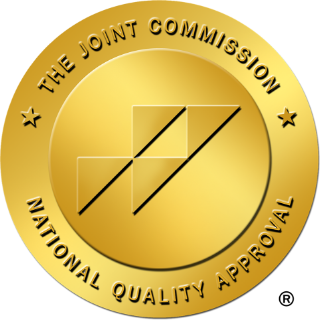An unhealthy dynamic in a relationship can deeply affect your emotional well-being, personal growth, and sense of self. If you often feel that your own needs come second to a partner, friend, or family member, or that your self-worth is tied to their approval, you may find yourself asking a critical question: what is codependency?
Codependency is a complex and learned behavioral pattern characterized by an excessive emotional or psychological reliance on another person. It creates a dysfunctional cycle where one person enables another’s addiction, immaturity, or irresponsibility, often at great personal cost, making the relationship feel impossible to break free from.
At its core, codependency manifests as a persistent pattern of putting others’ needs before your own, often to the point of self-detriment. You might find yourself constantly sacrificing your personal desires and long-term goals to please someone else, or feeling an overwhelming sense of responsibility for managing their emotions and fixing their problems. In this dynamic, your sense of purpose is derived almost entirely from being needed by others, which can make it incredibly difficult to identify and honor your own feelings and needs.
This pattern can emerge and take root in various relationship contexts:
- Romantic Relationships: Partners can become so enmeshed that their individual identities blur. One partner may adopt a caretaking role, managing the other’s life and emotions, while their own aspirations fade into the background.
- Family Relationships: Often seen between parents and children, this can involve a parent who lives vicariously through their child or an adult child who struggles to establish independence from a controlling or needy parent.
- Friendships: The dynamic can become one-sided, where one friend consistently acts as the therapist or rescuer, providing endless support while their own needs go unspoken and unmet.
The impact of codependency reaches far beyond relationship dynamics, often leading to chronic anxiety, persistent feelings of depression, and a severely diminished sense of self-worth. Your mental health may suffer as you exhaust your emotional and physical energy trying to maintain these unbalanced connections. Understanding the signs and patterns of codependency is the crucial first step toward reclaiming your identity and building healthier relationships—ones where both parties can maintain their independence while supporting each other in truly meaningful ways.
The Origins and Causes of Codependency
Codependent behaviors often stem from childhood experiences, especially within dysfunctional family systems. Kids growing up in homes with issues like substance abuse, mental illness, or emotional unavailability learn to cope by becoming overly aware of others’ needs while ignoring their own.
Key Family Dynamics That Foster Codependency:
- Parents who model martyrdom or excessive self-sacrifice
- Inconsistent emotional availability from caregivers
- Rigid family roles where children become emotional caretakers
- Punishment or criticism for expressing needs or emotions
These early experiences create deep-seated patterns of relating to others. Children develop an anxious-preoccupied attachment style, constantly seeking approval and validation from those around them. They learn that their worth is tied to their ability to care for and please others.
The Impact of Non-Confrontational Family Norms:
- Avoiding healthy conflict becomes a survival strategy
- Feelings are buried to maintain family harmony
- Personal boundaries become blurred or non-existent
- Self-worth becomes dependent on others’ approval
The child’s developing sense of self becomes intertwined with their caretaking role. This creates a blueprint for future relationships where self-sacrifice and approval-seeking feel natural and necessary. These learned behaviors can persist into adulthood, shaping how individuals navigate their relationships and sense of self-worth.
Related: 10 Benefits of Group Therapy for Mental Health
Recognizing Codependent Behaviors: 7 Key Signs to Look Out For
Identifying codependent behaviors is a crucial first step in breaking free from unhealthy relationship patterns. These behaviors often feel normal to those experiencing them, making recognition challenging yet essential for healing. Let’s explore seven key signs that might indicate codependency in your relationships:
1. Prioritizing Others’ Needs Above Your Own
- Neglecting personal responsibilities to help others
- Feeling guilty when practicing self-care
- Sacrificing your own goals and dreams for someone else’s
2. People-Pleasing and Approval-Seeking
- Changing your opinions to match others
- Difficulty making decisions without input from others
- Constant worry about what others think of you
3. Boundary Issues
- Allowing others to take advantage of your time and energy
- Unable to identify where you end and others begin
- Feeling responsible for fixing other people’s problems
4. Taking on Others’ Emotional Burdens
- Absorbing blame for situations beyond your control
- Feeling personally responsible for others’ happiness
- Apologizing excessively for things that aren’t your fault
5. Fear-Driven Decision Making
- Staying in unhealthy relationships due to abandonment fears
- Compromising personal values to maintain relationships
- Avoiding change due to fear of being alone
6. Difficulty Expressing Feelings
- Hiding true emotions to keep peace
- Unable to say “no” without extensive justification
- Avoiding confrontation at all costs
7. Unstable Sense of Self
- Defining your worth through others’ opinions
- Struggling to identify personal likes and dislikes
- Feeling lost or empty when alone
These patterns often interweave and reinforce each other, creating a complex web of behaviors that can feel impossible to untangle. Understanding these signs helps create awareness of codependent tendencies and opens the door to developing healthier relationship dynamics.
Remember that experiencing some of these behaviors occasionally doesn’t necessarily indicate codependency. The key lies in recognizing persistent patterns that significantly impact your well-being and relationships.
If you feel lost in the cycle of addiction or mental health challenges, our expert team is here to offer clear, professional guidance. For immediate support and answers to your questions, send a message to Pacific Breeze Recovery now.
The Impact of Codependency on Mental Health and Self-Worth

Codependency creates deep-rooted patterns that significantly impact mental health and emotional well-being. The constant need to control situations and please others leads to chronic stress, manifesting as:
- Persistent anxiety about others’ reactions
- Physical exhaustion from emotional caregiving
- Sleep disturbances and mood swings
- Recurring feelings of guilt and shame
The cycle of codependency gradually erodes self-esteem, leaving individuals feeling empty and powerless. This emotional drain often triggers depression symptoms, as personal identity becomes increasingly tied to others’ needs and validation.
People caught in codependent relationships frequently enable destructive behaviors in their partners, including substance abuse or emotional manipulation. This dynamic creates a harmful cycle where:
- The codependent person sacrifices their well-being
- The partner’s problematic behavior continues unchecked
- Both parties become trapped in unhealthy patterns
- Recovery becomes more challenging for everyone involved
The psychological toll extends beyond immediate relationships. Codependents often struggle with:
- Making independent decisions
- Expressing authentic emotions
- Setting personal goals
- Maintaining healthy friendships outside their primary relationship
This constant suppression of personal needs and emotions creates a disconnection from one’s true self, making it increasingly difficult to recognize and honor individual worth separate from others’ approval.
Treatment Approaches for Overcoming Codependency: A Holistic Perspective from Pacific Breeze Recovery’s Treatment Approach
At Pacific Breeze Recovery, we understand that healing from codependency requires a comprehensive treatment approach that addresses both behavioral patterns and underlying emotional wounds. Our therapeutic framework combines evidence-based practices with holistic healing methods to support lasting recovery.
Core Treatment Components:
- Pattern Recognition Therapy: We guide clients through identifying their specific codependent behaviors and understanding how these patterns developed. This awareness creates the foundation for meaningful change.
- Guilt-Release Work: Through specialized therapeutic techniques, clients learn to challenge and release deep-seated guilt around prioritizing their own needs.
- Boundary-Setting Practice: Our therapists teach practical skills for establishing and maintaining healthy boundaries in relationships, including:
- Clear communication techniques
- Assertiveness training
- Recognition of personal limits
- Self-advocacy strategies
Professional Support Structure:
Our experienced team includes licensed marriage and family therapists, psychotherapists, and mental health professionals who specialize in codependency treatment. This expert guidance provides:
- Personalized treatment plans tailored to individual needs
- Safe space for exploring relationship dynamics
- Tools for developing healthy coping mechanisms
- Support for building authentic relationships
Through group therapy sessions, clients connect with others facing similar challenges, reducing isolation and fostering mutual understanding. Individual therapy sessions allow for deeper exploration of personal triggers and healing strategies.
Related: Does Couples Counseling Work?
Steps Toward Recovery: Setting Healthy Boundaries, Building Self-Worth, And Cultivating Emotional Independence In Your Relationships
Breaking free from codependent patterns requires practical steps and consistent practice. Here’s how to build healthier relationships while maintaining your sense of self:
1. Assert Your Needs with Confidence
- Use “I” statements to express feelings and needs
- Practice saying “I need time to think about it” before responding
- Set clear limits on your time and energy
- Communicate boundaries calmly and directly
2. Cultivate Independent Interests
- Dedicate time to hobbies you enjoy alone
- Join groups or classes aligned with your interests
- Maintain separate friendships outside your primary relationships
- Schedule regular “me time” for self-care and reflection
3. Build Inner Strength
- Start a daily self-validation practice
- Notice and celebrate your accomplishments without seeking external approval
- Challenge negative self-talk with compassionate self-dialogue
- Trust your judgment and decision-making abilities
Remember that healthy relationships thrive on interdependence – where both partners maintain their individuality while supporting each other. When you feel the urge to abandon your needs for others, pause and check in with yourself. Ask: “What do I truly want in this situation?” This simple practice helps strengthen your connection to your authentic self.
Getting Help from Pacific Breeze Recovery
Breaking free from codependent patterns is possible with professional support. At Pacific Breeze Recovery, our experienced team provides comprehensive treatment options tailored to your unique needs. We offer specialized care for:
- Anxiety and Depression
- Bipolar Disorder
- PTSD
- Dual Diagnosis Treatment
Our evidence-based therapeutic approaches include:
- Cognitive Behavioral Therapy (CBT) – helps identify and change unhealthy thought patterns
- Dialectical Behavior Therapy (DBT) – builds skills for emotional regulation and interpersonal effectiveness
Located in Southern California, our medical and holistic treatment center creates a supportive environment where you can focus on healing and personal growth. We understand the complexities of codependency and its connection to mental health challenges.
We also provide effective group therapy options, allowing you to join a supportive community dedicated to your recovery.
Ready to start your journey toward healthier relationships? Contact Pacific Breeze Recovery today. Our compassionate team is here to guide you through each step of recovery. Call us or visit our website to learn more about our personalized treatment programs.
Related: 10 Rewarding Benefits of Cognitive Behavioral Therapy (CBT)
FAQs (Frequently Asked Questions)

What is codependency and how does it affect relationships?
Codependency is an excessive emotional or psychological reliance on a relationship, where individuals prioritize others’ needs over their own well-being. It commonly occurs in romantic relationships, family dynamics, and friendships, often impacting mental health and overall wellness.
What causes codependent behaviors to develop?
Codependent behaviors often stem from dysfunctional family dynamics experienced during childhood. Factors such as emotional repression, insecure attachment styles like anxious-preoccupied, and non-confrontational family norms contribute to patterns of self-sacrifice and approval-seeking shaped by parents and caregivers.
What are the key signs that indicate someone might be codependent?
Seven key signs of codependency include consistently elevating others’ needs above one’s own (self-sacrifice), people-pleasing behaviors, difficulty setting healthy boundaries, taking excessive responsibility for others’ emotions or problems, fear of rejection or abandonment influencing decisions, struggling to express true feelings or say ‘no’, and having a weak sense of self dependent on others for validation.
How does codependency impact mental health and self-worth?
Codependency can lower self-esteem and foster feelings of emptiness or powerlessness. The chronic stress from controlling behaviors and conflict avoidance may lead to anxiety and depression. Additionally, enabling substance use or emotionally abusive partners perpetuates dysfunctional dynamics, taking a toll on personal independence and emotional expression.
What treatment approaches are effective for overcoming codependency?
Effective treatment includes therapy goals focused on identifying codependent patterns and challenging guilt associated with people-pleasing. Techniques involve building healthy boundaries, improving communication skills, and seeking professional support from experienced marriage and family therapists or psychotherapists. A holistic perspective, such as that offered by Pacific Breeze Recovery, supports comprehensive healing.
How can I start recovering from codependency in my relationships?
Recovery steps include asserting personal needs confidently without aggression or fear, cultivating independent interests while maintaining healthy interdependence in relationships, and developing a secure sense of self separate from others’ approval. Seeking personalized support from centers like Pacific Breeze Recovery can provide tailored medical and holistic treatment services to aid this journey.
Taking the first step toward recovery is the most important one you’ll make, and you don’t have to do it alone. Message our compassionate admissions team today for a confidential conversation about how we can help you heal.





